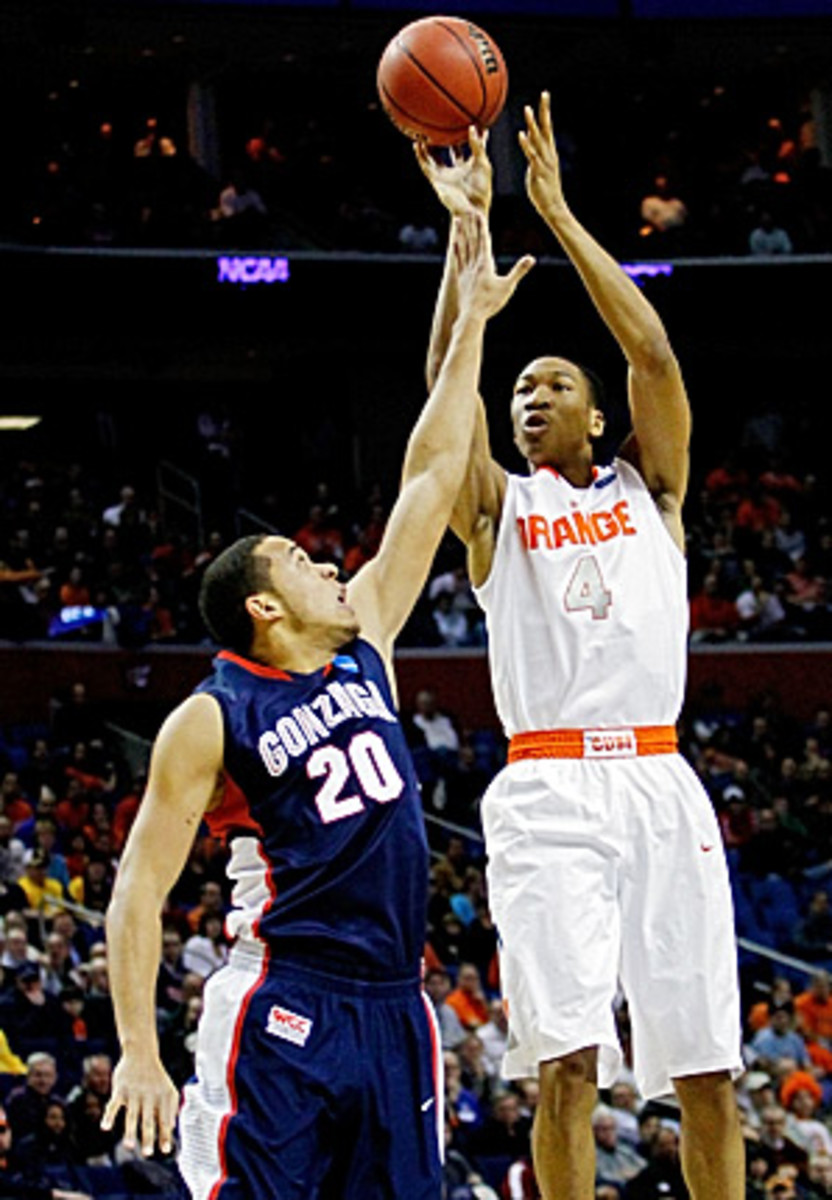Teams, players to watch in draft
• Timberwolves at No. 4 (and Nos. 16 and 23). Say they can't get to Evan Turner (the likely No. 2 pick by Philadelphia) or Johnson. Do they take Derrick Favors as another power forward to go with Kevin Love and Al Jefferson, himself a power forward masked as a center? Unless they're convinced DeMarcus Cousins is an impending disaster, don't they have to select him as the best true center in the draft? And if they're not sold on Cousins or Favors, then don't the Timberwolves have to trade up or down from the No. 4 pick? The availability of Jefferson adds another variable to this complicated formula.
• Jazz at No. 9. They rarely have the opportunity to pick so high in the draft. Doesn't it figure they're trying to move up for a potential star, much as they did in 2005 when they traded up to pick Deron Williams? That move provided the Jazz with a franchise talent they couldn't acquire by trade or free agency. They need size up front, and maybe they believe Cousins could thrive in the structure of daily life with Jerry Sloan. Maybe it's Greg Monroe they covet. But they're surely investigating all available options before cashing out this Knicks pick they acquired from Phoenix as part of the Suns' Stephon Marbury trade to New York.
• Pacers at No. 10. They need a point guard and find themselves in a draft woefully short at that position. Team president Larry Bird has encouraged offers by declaring his willingness to trade the pick for a point guard -- rookie or veteran. Here's one possibility among many: Swap No. 10 for Oklahoma City's picks at Nos. 18 (which the Thunder acquired Wednesday in a salary dump by Miami) and No. 21, enabling Bird to use No. 18 on Avery Bradley as a deep-shooting point.
• Thunder at Nos. 18, 21 and 26. Each year GM Sam Presti is one of the most important people in the draft; he used to dominate the top of the lottery when he was making one or more top-five picks, and now that his team is in the playoffs he's controlling the back end of the first round with multiple picks. He is a must-call for teams hoping to deal up, move back or trade into the first round. If he doesn't like the offers, then he can hold on to the picks and supplement his talented young roster with cheap labor in a draft that is rich with role players throughout the first round.
• Wes Johnson. Each year a hot player emerges at the top of the draft, and this time it's the Syracuse forward. The Timberwolves hope to get to him while the Nets consider him as the No. 3 pick, with questions about his defense receding amid plans to utilize his scoring and playmaking on the wing. He has a chance to be Rookie of the Year as a featured scorer for either team.
• DeMarcus Cousins. Any team that needs a center could be second-guessing itself for not making a run at Cousins. The Timberwolves are threatening to pass him by at No. 4, while the Pistons have been trying like mad to move up from No. 7 to draft him. He'll rebound and block shots and he has the potential to step up and make jump shots.
• Greg Monroe. A flexible team like the Kings or Warriors would deploy him as a playmaker at center, as Monroe is the silkiest frontcourt passer in this draft. He could go as high as No. 5 to Sacramento if Cousins is off the board, or he could slip all the way to No. 9 if the hard-to-predict Warriors use their pick at No. 6 on Epke Udoh.
• Gordon Hayward. He's a popular name among teams picking Nos. 10-15 after he led Butler to the NCAA championship game. If he's sitting at No. 10 and Indiana can't move the pick for a point guard, do his hometown Pacers take him? Hayward's local popularity may be the tipping point in his favor.
• Hassan Whiteside. Another big man sliding in this draft is Daniel Orton, but knee issues are part of the blame with him. Whiteside has no such excuse: With him the questions are based entirely on his attitude and maturity. It will be difficult for any team in the 20s to bypass his talent, as he has the physical makings of another Marcus Camby. It'sbest for him if he's picked by a well-structured organization like Oklahoma City, which can afford to take a risk in hopes that its young roster can corral Whiteside and bring out his best qualities.
• Al Jefferson, Timberwolves. He could be part of a larger trade by Minnesota. He has three years and $42 million left on his contract.
• Rip Hamilton, Pistons. Detroit has been offering him in hopes of moving up, but his three years at $12.5 million annually may be prohibitive.
• Kirk Hinrich, Bulls. How many times can we mention him as trade bait? On Wednesday, Miami dumped Daequan Cook's salary along with its No. 18 pick to clear extra cap space; maybe Chicago will make a similar move.
Update: A source confirmed to SI.com that the Bulls agreed to send Hinrich and their No. 17 draft pick to the Wizards. The move, which will be made official July 8, allows the Bulls to clear extra cap space to bring on another max free agrent this summer.





